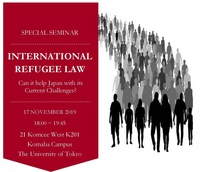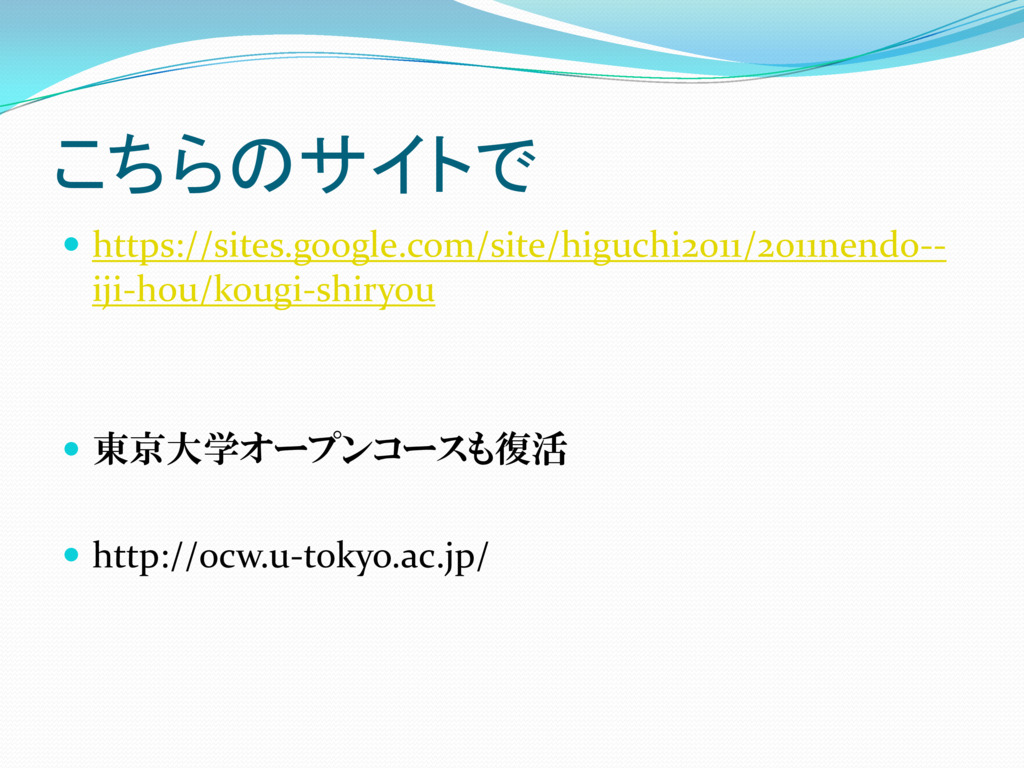
2019年度開講
International Refugee Law - Essentials and Comparatives
Course 1 – “Understanding the essentials: International Refugee, Protection, Human Rights and Migration -Law, procedures and assessment” - 6 seminars held on 15-17 October (at 1650 to 2030) at Komaba
Course 2 – “Wider aspects of international Protection law, practices and the treatment of refugees and migrants AND in depth Comparative assessment of several Asian Court decisions with international norms.”-6 seminars held on 12-14 November (at 1650 to 2030) at Komaba
The last seminar will be as the side-event of the conference of Japan Association for Human Security Studies and Japan Society for International Development on 17 November at 1845-2030
Course 1 : “Understanding the essentials”
1. Introduction and background – The essentials of the individual in Human Rights, Human Dignity and Human Security. Overview of the whole Human Rights framework
2. How Refugee other International (Complementary) Protection / non refoulement laws and obligations fall within this framework. A closer look at all the Refugee Convention 1951, Protocol 1967 its background and the role of the UNHCR. How and why refugee and other protection is part of this international framework and NOT the same as Domestic Migration law.
3. Who is a “refugee “and the “Structured approach” to assessment of asylum claims covering: RSD pursuant to Article 1A (2). Core issues 1 and 2:” Country of origin Information (COI)” and” Credibility Assessment –the facts as found/accepted.”
4. RSD Core issues 3 and 4: “The nature and seriousness of the harm/Being persecuted”. “Well-founded fear-Risk of harm”.
5. RSD Core issues 5, 6 and related issues: “for reasons of” and Convention reasons”, “Exclusion” and “Cessation”. International law on Fair procedures, rights to an effective remedy and fair trial.
6. Complementary protection and why and how all IP assessment should done together. A short case study (50 mins)? Comments. Feedback, Q and A.
Course 2 :“The wider aspects of international Protection and Migration law and practices, and treatment of claimants/refugees. Case studies of actual published Japanese cases with international norms using comparative judicial assessments”
1. The 2018 Global Compacts on Refugees and Safe, Orderly and Regular Migration. (with Sato sensei and others for Japan’s approach). (With assistance from UNHCR Tokyo): Statelessness, Mandated refugees, and resettlement, reception and treatment of claimants / vulnerable persons (New Zealand and Japanese approaches).
2. Comparative domestic humanitarian migration law and where protection law and migration law can overlap. Detention and alternatives to detention, assimilation programs, education, family unity (New Zealand and Japan). Climate change and forced migration challenges (particularly in the Pacific).
3. * Legality of the status of claimants during assessment – comparative Visa regimes. (Does the Japanese approach have perverse, abusive results?). Comparative Court assessment/appeal decisions /case studies 3-5 actual Japanese (?1 Korean ) Court decisions with comparative assessment according to “International” norms of refugee law by IARMJ judges.
4. Comparative case assessments - As above.
5. Thursday 14th afternoon: continue as above.
6. As above and Final summary and Q and A
7. Final part of course is to attend the Joint Conferences of JASID/JAHSS /ANRIP at Todai Komaba.
*For 13, 14 and 17 November Martin Treadwell ( President of IARMJ Asia Pacific chapter ) will join the Seminars.
講義一覧













